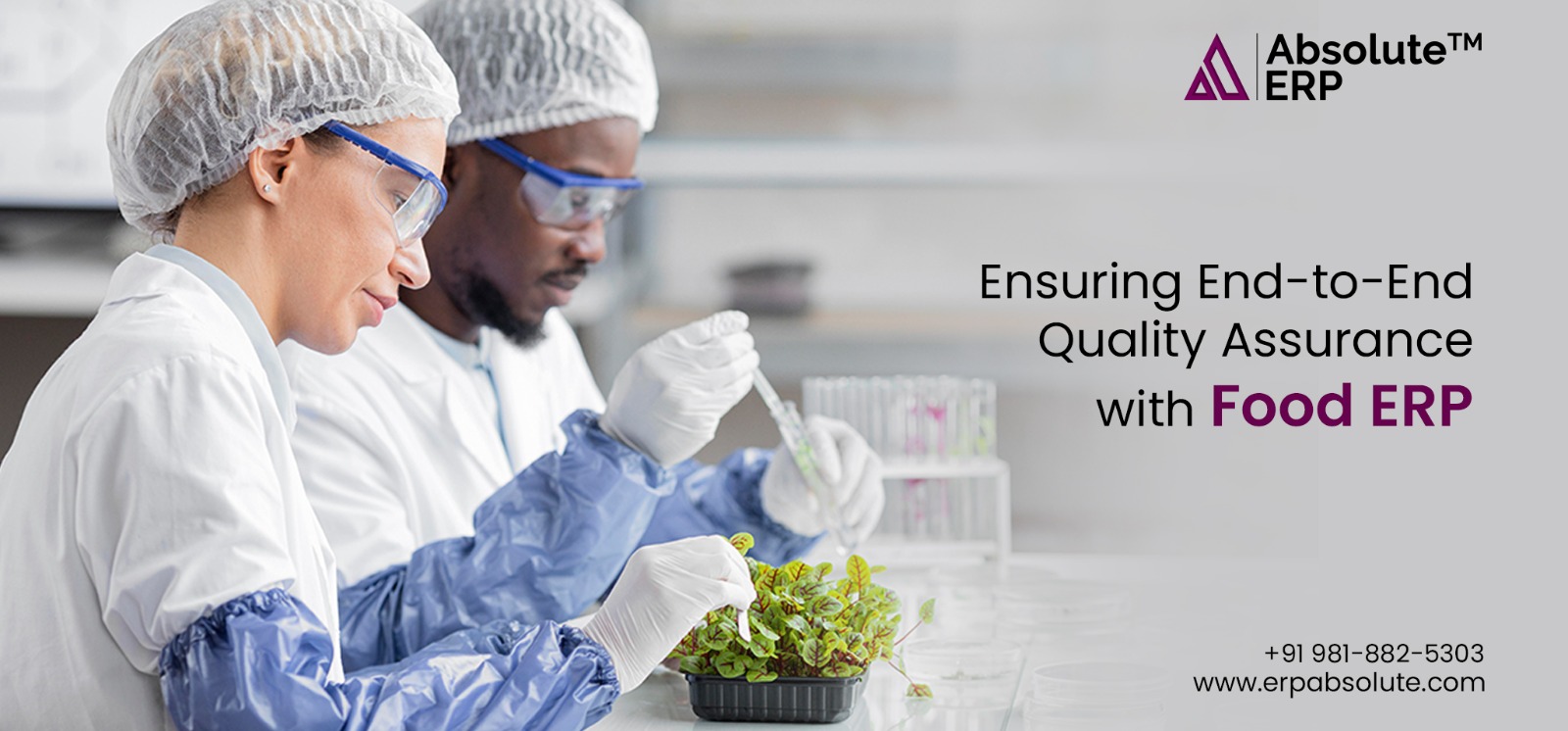
Among every other business, running a food and beverage business is a tough one. It’s multifaceted with a plethora of work operations, which is not a one-and-done deal; it’s an ongoing process to make sure that you deliver consistent, safe, and high-quality products to your customers. From checking raw materials to tracking the entire production line and testing the final production, the food and beverage business demands solid precision and dedication to deliver the safe and expected result.
And it’s not just about meeting quality standards and compliance; it goes beyond to make sure that your customers are happy and keep coming back to your business online.
Now, let’s get real—running a food business isn’t just about taste; it’s a global health issue, as the shelf life of food products is limited. Food and beverage businesses have to make sure that the product is free from nasties such as pesticides, bacteria, and fungus, which can weed out if the food is not consumed before the expiry date.
Another challenge that most of the food and beverage business owners are grappling with is the stock shortage and overproduction. Keeping track of the supply chain and inventory is undeniably important when you’re running a food manufacturing business.
If you’re also facing such problems in your business then this blog is for you. Here we’ll help you acquaint yourself with one revolutionary business intelligence that has become a buzzword among food and beverage manufacturers and business owners. Keep holding till the end to learn more about this revolutionary Ai-powered interface that has changed the working of the food sector.
Understanding Food ERP System
A Food ERP System is a robust, focused ERP system built for the food industries, intended to manage and enhance the efficiency of every process in food manufacturing, preserving, distributing, and conforming to regulations. It consolidates functionalities that are crucial for any organization, including inventory tracking, supply chain operations, quality assurance, traceability and compliance onto one, smart solution.
Providing real time, coherent info and automating processes, a Food ERP system is proven to increase the effectiveness and efficiency of businesses in improving productivity, minimize food loss and gain higher profitability. As a food manufacturer, distributor or supplier, it’s essential to implement a solid Food ERP solution, which will enable you to gain sweeping oversight throughout your processes, further ensuring that you meet all the industry requirements and get your products to the market as soon as possible.
For any business today, especially the food business, to rely on old methods of delivery or to manually process orders is dangerous. The right Food ERP software unleashes the potential in your operations and bolsters your decision making, while paving way to sustainable growth, which makes Food ERP, a wise investment for the future ready food business.
Automation and AI in Food ERP Systems: Revolutionizing the Industry
Automation and artificial intelligence (AI) are rapidly conquering the field of Food ERP systems, which is expressed by the ability to fundamentally change the activity of food companies with the help of mechanisms that provide unprecedented accuracy and inventive approach to the work.
Right from the planning to actual production, and quality control, the presence of automation by means of emulative intelligence removes muscular barriers and greatly improves the reviewing and deciding processes to achieve optimal results.
Key Ways Automation and AI Enhance Food ERP Systems, including-
● Optimized Reordering – AI demand forecasting helps to avoid stock out and overstocking so that the inventory is at its best.
● Automated Compliance & Traceability – Modern tracking systems also monitor every milestone of a supply chain so that compliance reports or recalls can be provided immediately.
● AI-Driven Quality Control – Machine learning algorithms are able to identify quality gaps, assess product quality in real-time, and prevent deformities from reaching the consumers.
● Predictive maintenance for Equipment- Such uses enable the machinery to be monitored and the probability of failure expected to occur to be detected before it actually happens thus minimizing the time the equipment is off and therefore reducing the maintenance cost.
● Increased Production Scheduling – Scheduling is made easier in production since the software helps in developing efficient means of doing things hence reducing wastage.
● Smart Supply Chain Management – Through machine learning, the choice of suppliers, as well as the transportation and overall expenses, can be decided based on past experience together with the current information.
Why Food Businesses Must Adopt AI-Enabled ERP Now
The food industry is evolving at an unprecedented pace, and businesses that don’t embrace AI-driven ERP solutions risk inefficiencies, compliance issues, and lost opportunities. AI and automation in Food ERP empower businesses to optimize operations, enhance food safety, and improve profitability. Here’s why adopting AI-enabled ERP is crucial today:
Key Reasons to Upgrade Now
● Enhanced Efficiency – Automates routine tasks, reducing manual effort and errors.
● Smart Demand Forecasting – Uses AI-driven analytics to predict demand and optimize inventory.
● Real-Time Quality Control – Detects defects instantly, ensuring consistent product quality.
● Regulatory Compliance & Traceability – Automates compliance tracking and provides end-to-end visibility.
● Predictive Maintenance – Prevents equipment breakdowns, reducing downtime and costs.
● Optimized Supply Chain – AI-driven logistics streamline procurement, production, and distribution.
● Cost Reduction & Higher Profitability – Minimizes waste, improves efficiency, and maximizes ROI.
Conclusion
In today’s fast-paced food industry, AI-powered ERP systems are no longer optional—they are essential. By integrating automation and artificial intelligence, food businesses can streamline operations, ensure compliance, enhance quality, and drive higher profitability.
Delaying digital transformation means falling behind competitors who are leveraging AI to optimize efficiency, reduce costs, and deliver superior products to market faster. Investing in an AI-driven Food ERP system today ensures long-term success, resilience, and sustainable growth.
Now is the time to take action—embrace AI-driven ERP and lead your food business into a smarter, more efficient future!







